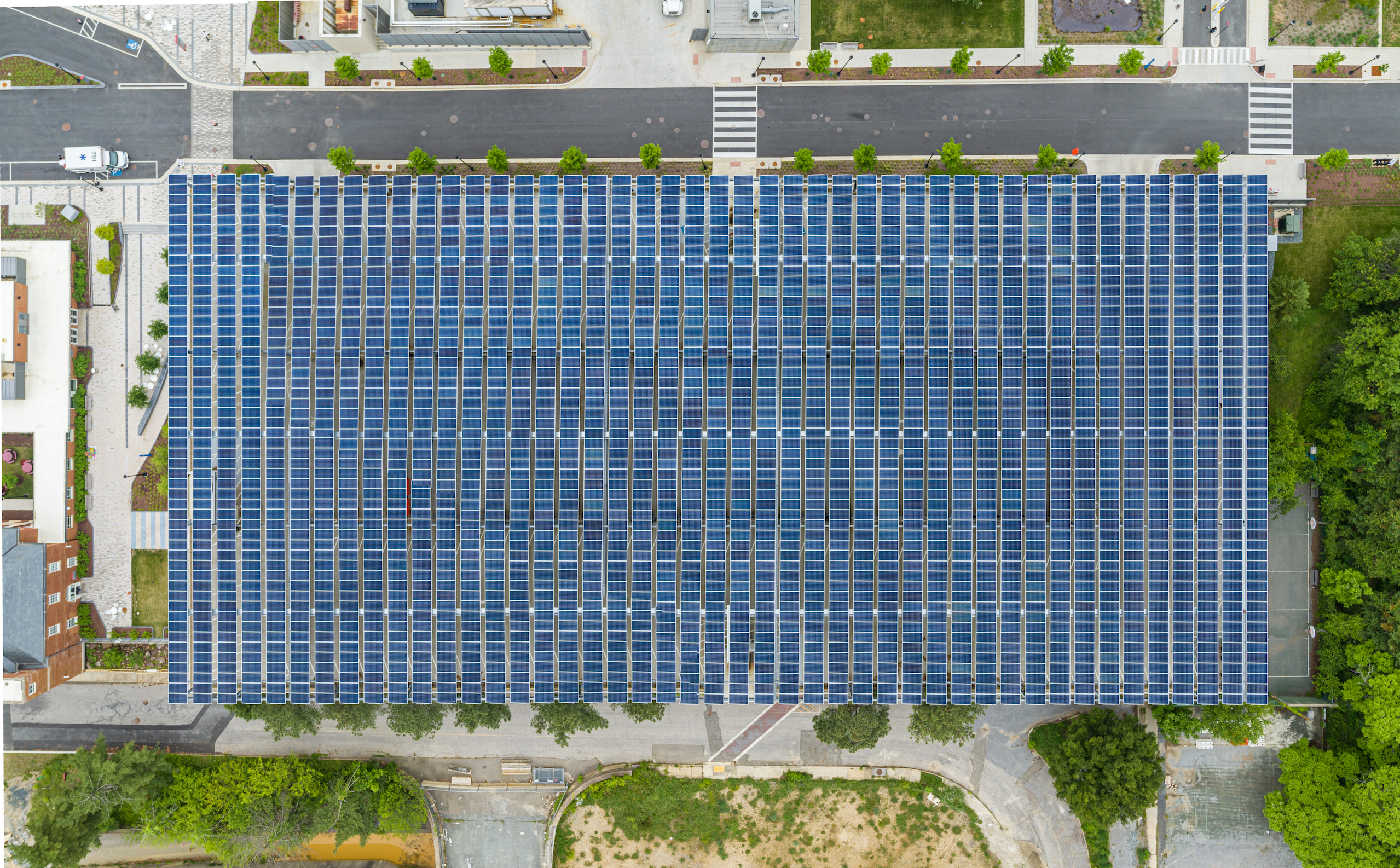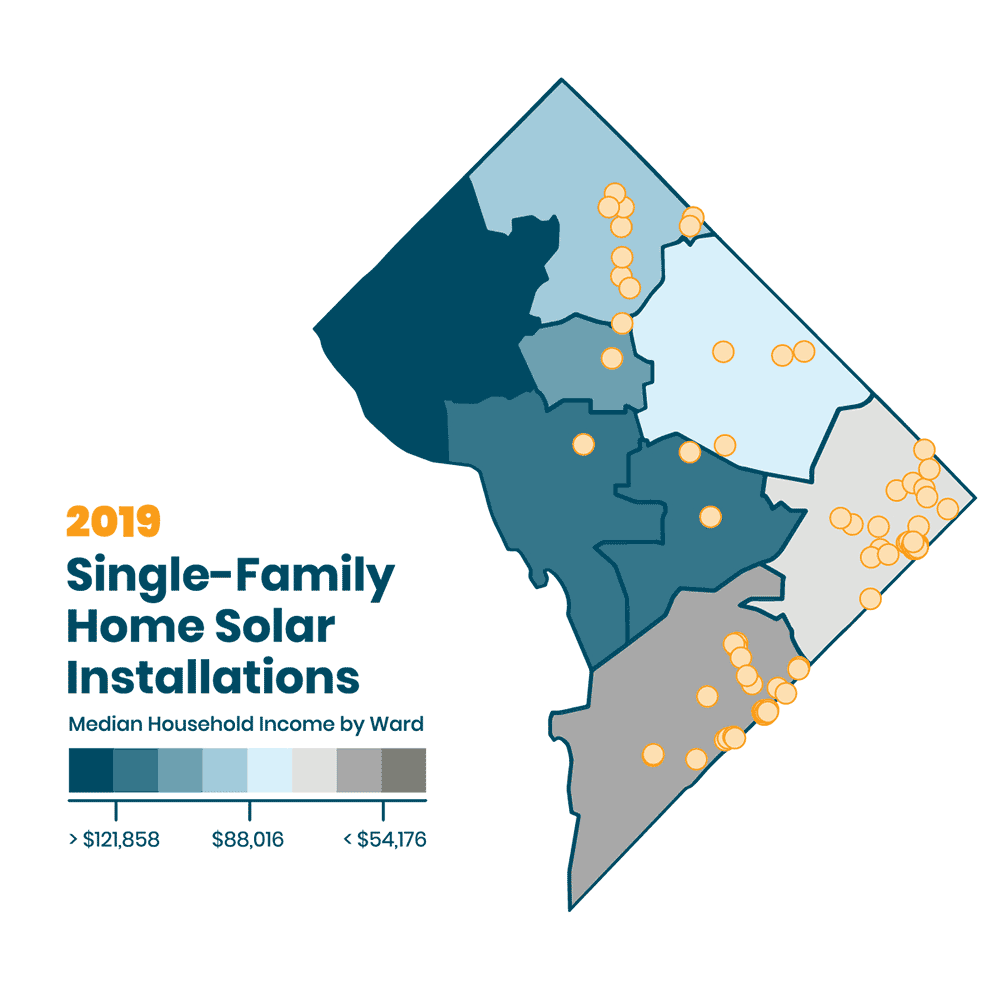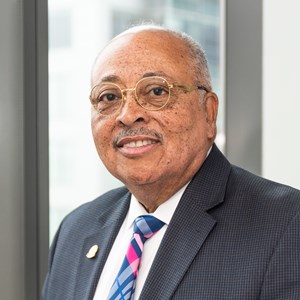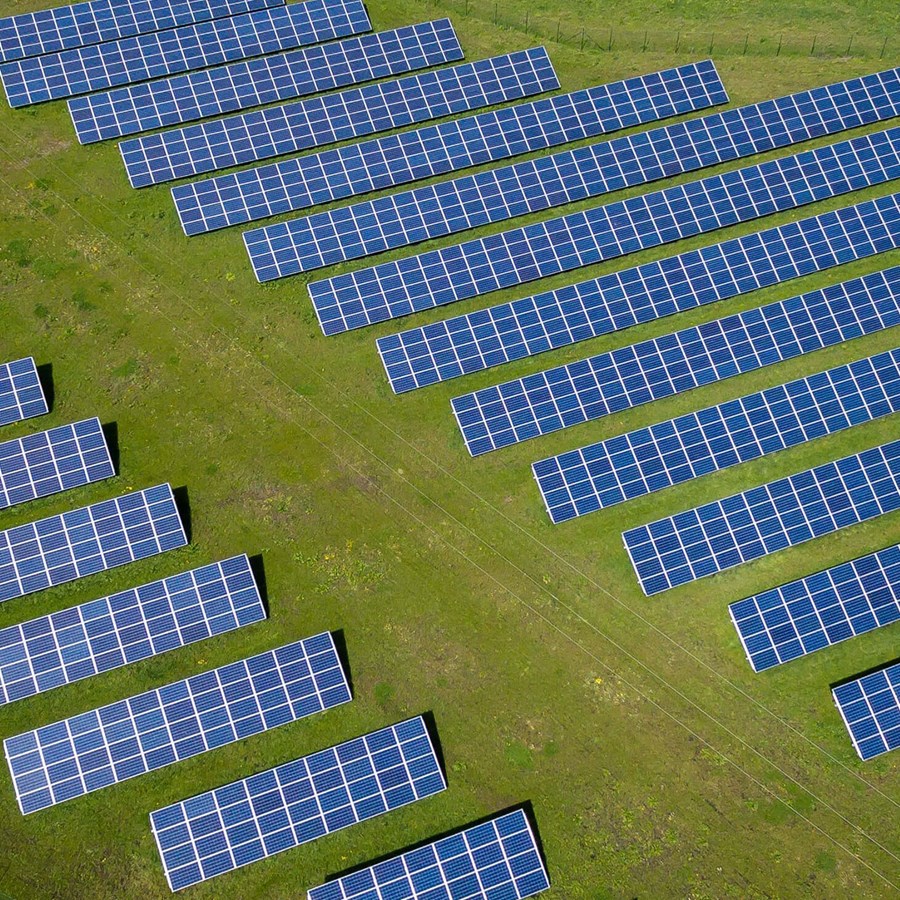How can a well-designed program make clean energy and energy efficiency more accessible to everyone?
.png?width=1800)
The Challenge
The District of Columbia has enacted some of the most aggressive decarbonization and renewable energy goals in the country. To ensure that all residents would share in the benefits of its clean energy transition, DC needed to overcome barriers to solar and find ways to deliver solar to 100,000 low- and moderate-income households by 2032.
The Solution
The District of Columbia’s Sustainable Energy Utility (DCSEU), an energy efficiency utility implemented by VEIC, worked with government officials, community leaders, and local solar organizations to overcome the barriers to solar through a program that provides solar to income-qualified households at no cost. Services: Building Decarbonization , Clean and Flexible Grid
The Impact
In the first four years of its Solar for All partnership with the Department of Energy and Environment (DOEE), the DCSEU has delivered more than 434 single-family solar systems and more than 180 Community Renewable Energy Facilities (CREFs or “community solar”)—all serving income-qualified residents in the District. Together, these installations produce enough electricity to serve more than 6,000 households.
Decarbonizing the Nation’s Capital
In recent years, the District of Columbia has emerged as a global decarbonization leader, striving to power the city with 100 percent renewable energy by 2032, create 10% local solar generation by 2041, and achieve carbon neutrality by 2044. The transition to a clean energy system starts with being more efficient and using fewer resources, but it also means expanding the supply of carbon-free energy that powers the city.
The Department of Energy and Environment (DOEE) needed a partner who could accelerate solar installations in DC and lower the cost of energy for those residents most burdened by high energy bills. Based on its previous experience delivering solar to income-qualified households from 2012-2016, DOEE selected the District of Columbia Sustainable Energy Utility (DCSEU) to fulfill the promise of Solar for All. The program has been so successful, it was recently awarded one of only five prestigious Sunny Awards from the U.S. Department of Energy.
.jpg)
Building Energy Justice with Affordable Solar
Implemented by VEIC, the DCSEU designs and delivers community-centered initiatives that make clean energy more affordable and more accessible to DC residents and businesses. In just over ten years, programs offered by the DCSEU have driven more than $1.4 billion in lifetime cost savings and prevented more than 7 million metric tons of lifetime greenhouse gas emissions. With comprehensive experience designing and implementing energy efficiency and renewable energy programs, and with a deep commitment to equity, the experts at the DCSEU and VEIC were a natural choice to take the Solar for All initiative to the next level.

Solar can significantly reduce household electricity costs, but communities with the highest proportional energy burden also tend to have some of the lowest rates of solar penetration. To achieve its renewable energy goals and increase the accessibility of solar, the District needed to expand solar in precisely those areas where household incomes are lowest. No easy task.
Working with local businesses, community organizations, and government officials, the program team created an approach that overcomes cost barriers to solar and accelerates installations for all income-qualified households, including renters.
Transforming the Market with Innovative Program Design
Solar for All works by providing market incentives for two different types of solar installation: single-family rooftop installations, and larger community solar installations. Solar developers earn a competitive return on the systems they build by monetizing available tax credits and by participating in the solar renewable energy credit (SREC) market. Demand to participate is high. Each annual application process has received more proposals than can be funded.
.jpg)
Achieving DC’s Clean Energy Future, One Household at a Time
From 2019 to 2022, the DCSEU’s work on Solar for All has supported 58% of all the CREFs that have ever been built in the District. With an additional 434 single-family rooftop systems, the program has helped deliver enough solar to serve 6,000 income-qualified households and reduce their electric bills by $500 annually. The program’s innovative strategy has driven solar capacity in Wards 5, 7, and 8—the three Wards where average incomes are lowest. As of December 2021, these three Wards produce a higher share of DC’s solar energy than any other Ward.
.jpg)
From 2019 to 2022, the DCSEU’s work on Solar for All has supported 58% of all the CREFs that have ever been built in the District. With an additional 434 single-family rooftop systems, the program has helped deliver enough solar to serve 6,000 income-qualified households and reduce their electric bills by $500 annually. The program’s innovative strategy has driven solar capacity in Wards 5, 7, and 8—the three Wards where average incomes are lowest. As of December 2021, these three Wards produce a higher share of DC’s solar energy than any other Ward.

There’s a lot to celebrate in the success of Solar for All. In a short period of time, the program’s comprehensive approach has made a real difference for DC’s most vulnerable residents and catalyzed DC’s renewable energy economy. One household at a time, Solar for All is helping the city achieve its decarbonization goals while ensuring equity and accessibility.

